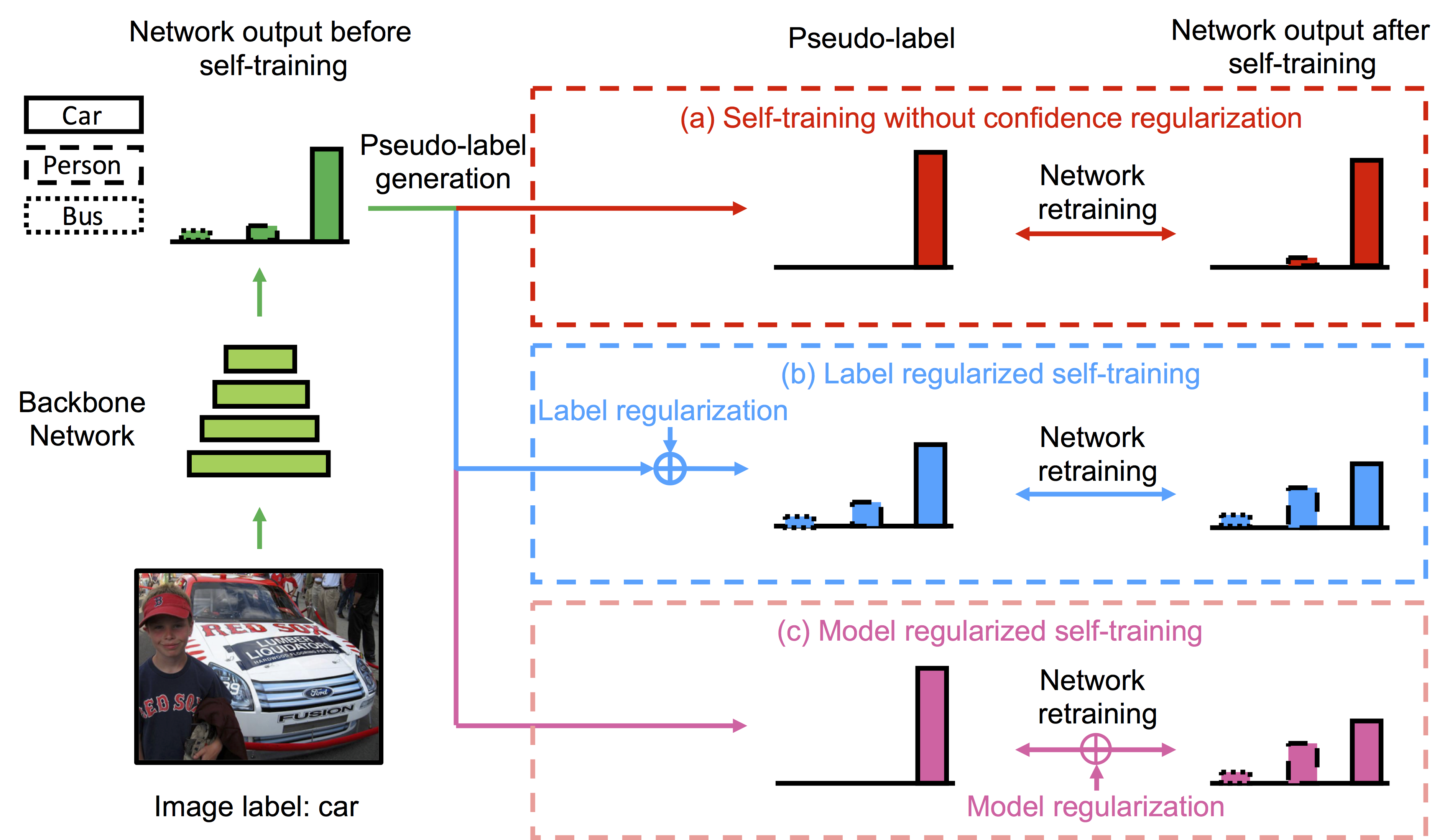 Recent advances in domain adaptation show that deep self-training presents a powerful means for unsupervised domain adaptation. These methods often involve an iterative process of predicting on target domain and then taking the confident predictions as pseudo-labels for retraining. However, since pseudo-labels can be noisy, self-training can put overconfident label belief on wrong classes, leading to deviated solutions with propagated errors. To address the problem, we propose a confidence regularized self-training (CRST) framework, formulated as regularized self-training. Our method treats pseudo-labels as continuous latent variables jointly optimized via alternating optimization. We propose two types of confidence regularization: label regularization (LR) and model regularization (MR). CRST-LR generates soft pseudo-labels while CRST-MR encourages the smoothness on network output. Extensive experiments on image classification and semantic segmentation show that CRSTs outperform their non-regularized counterpart with state-of-the-art performance. We believe this work can inspire future research on novel designs of regularizations as desired priors/inductive biases to benefit many domain adaptation/semi-supervised learning problems.
Recent advances in domain adaptation show that deep self-training presents a powerful means for unsupervised domain adaptation. These methods often involve an iterative process of predicting on target domain and then taking the confident predictions as pseudo-labels for retraining. However, since pseudo-labels can be noisy, self-training can put overconfident label belief on wrong classes, leading to deviated solutions with propagated errors. To address the problem, we propose a confidence regularized self-training (CRST) framework, formulated as regularized self-training. Our method treats pseudo-labels as continuous latent variables jointly optimized via alternating optimization. We propose two types of confidence regularization: label regularization (LR) and model regularization (MR). CRST-LR generates soft pseudo-labels while CRST-MR encourages the smoothness on network output. Extensive experiments on image classification and semantic segmentation show that CRSTs outperform their non-regularized counterpart with state-of-the-art performance. We believe this work can inspire future research on novel designs of regularizations as desired priors/inductive biases to benefit many domain adaptation/semi-supervised learning problems.